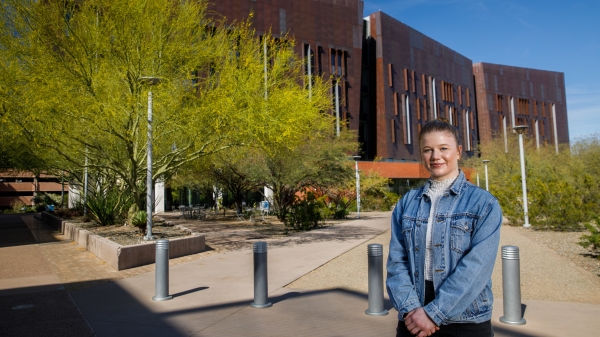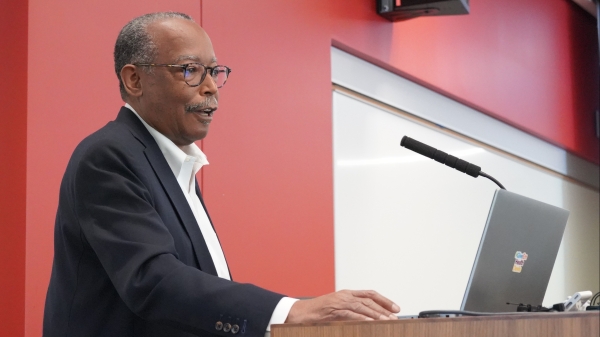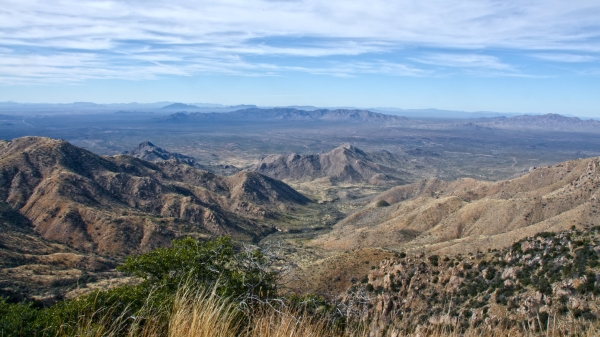Researchers meet at the intersection of public management and scientific enterprise
Center for Organization Research and Design creates Experimental Lab to better connect with other scholars, larger community

Image by Gerd Altmann/Pixabay
Scholars at Arizona State University’s Center for Organization Research and Design (CORD) are working at the intersection of public management and the scientific enterprise while “refreshing and reimagining” the center’s nationally and internationally respected role as a leader in public organization design, its new director said.
Julia Melkers, a Foundation Professor in the School of Public Affairs (SPA), arrived from the Georgia Institute of Technology to lead CORD in August 2022. The center was founded in 2013 as a leading research engine for public management in the science environment.
“CORD is at a place where we're building on a strong foundation of global and national recognition of its work,” Melkers said. “We are also refreshing and reimagining it as we come out of COVID. We are in the midst of some strategic thinking and engagement with affiliates at ASU and around the globe.”
One important addition to the center was the appointment of SPA Associate Professor Ulrich Jensen as CORD’s associate director, Melkers said. Jensen’s background as an experimentalist has led to the recent creation of the CORD Experimental Lab.
“SPA is one of the few public management schools where we have a strong cohort of experimentalists, something new for CORD to develop a broader identity,” Jensen said.
“We want to connect more with the Watts College and across campus with scholars interested in creating public value through research at the nexus of public policy and human behavior, studying the many ways they intersect. This research can advance public value by informing organizational design in public institutions, from science-based to other policy domains.”
For example, in the scientific realm, CORD is collaborating with ASU’s Center for Science, Technology and Environmental Policy Studies and colleagues in Europe to examine how international collaborative teams have adopted social innovations in response to how challenges and restrictions brought by the COVID-19 pandemic and its aftermath have affected scientific inquiry.
“It’s a fascinating study of how scientific teams interact, how organizations are structured, form their policies and rules, and who leads in times of disruption,” she said.
Another illustration from the local setting is that CORD’s Experimental Lab is also working with local governments and community organizations. One partnership with Scottsdale city leaders involves creating a continuous collaboration with experiments designed to understand public service delivery and strengthen their organization capacity. For example, a challenge many local governments face is recruiting and retaining talented and diverse young professionals. This project has also helped to bring other SPA faculty into the center to create a greater collaborative community of scholars and students, Melkers said.
CORD is also expanding its reach across ASU to expand transdisciplinary research opportunities. Melkers and other CORD faculty have begun a collaboration with another new ASU faculty member in philosophy on a project that looks at intellectual humility in science, bringing both philosophy and psychology into the discussion of organization design.
“We are expanding the CORD scholarly community on campus to allow us to do new and interesting important work that brings people together from different perspectives,” she said. “This brings new ways of looking at problems, at research questions, methods and even new types of data. It’s an exciting future.”
CORD is also a global player, having been a catalyst to bring together scholars from countries such as Denmark, Spain, Finland, Belgium, Mexico and the United Kingdom.
“We will continue to be a visible player in the international public management and science policy communities. CORD is engaged with international conferences as members of scientific committees and research panels. CORD has hosted and will continue to host international scholars, who visit us and bring fresh ideas and exposure,” said Melkers, who noted the center’s scholars will be attending two conferences in Europe soon.
“We are looking to build stronger and more recognizable networks with other centers around the country and the world,” she said. CORD scholars sit on several committees on the international, national, state and local levels.
“As part of ASU, an institution that is a dynamic leader in innovation, we have some really great opportunities here to do great work,” she said. “Our research can help lead social innovation in finding solutions to local as well as global programs, including here at ASU. We also give students opportunities to be meaningfully involved in exciting and important work.”
Melkers came to ASU in 2022 from the School of Public Policy at the Georgia Institute of Technology in Atlanta. Jensen came to ASU in 2016 after receiving his PhD degree at Aarhus University in Denmark.
CORD and SPA are based at the Watts College of Public Service and Community Solutions.
More Health and medicine

First exchange student for Biodesign Institute Europe bridges labs 5,000 miles apart
This spring semester, Grace Colley traveled to Arizona State University and became the first student to participate in the…

College of Health Solutions hosts visit from leading expert in genomic research
Some fortunate Arizona State University faculty, staff and students were able to gain valuable insights and perspective during a…

Indigenous ASU research team recommends assistance for tribal members still reeling from COVID-19’s effects
When Matt Ignacio’s tribe, the Tohono O’odham Nation, donated $1 million to Arizona State University to support COVID-19 research…